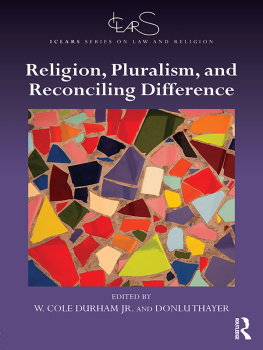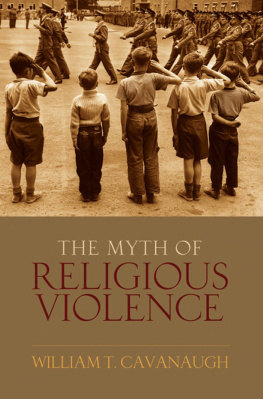Alevism as an Ethno-Religious Identity
Until recently the importance of religion in the modern world has often been underestimated in Western societies, whereas its significance is absolutely crucial in the Middle East. Religion is critical to a sense of belonging for communities and nations, and can be a force for unity or division. This is the case for the Alevis, an ethnic and religious community that constitutes approximately 20% of the Turkish population its second largest religious group. In the current crisis in the Middle East, the heightened religious tensions between Sunnis, Shias and Alawites raise questions about who the Alevis are and where they stand in this conflict. With an ambiguous relationship to Islam, historically Alevis have been treated as a suspect community in Turkey and recently, whilst distinct from Alawites, have sympathised with the Assad regimes secular orientation. The chapters in this book analyse different aspects of Alevi identity in relation to religion, politics, culture, education and national identity, drawing on specialist research in the field. The approach is interdisciplinary and contributes to wider debates concerning ethnicity, religion, migration and trans/national identity within and across ethno-religious boundaries.
The chapters in this book were originally published as a special issue of the National Identities journal.
Celia Jenkins is based in the Department of History, Sociology and Criminology at the University of Westminster, UK. She is a sociologist of education and gender, specialising in the relationship between the state, education, religion and identity. She has published on religious education and identity with reference to the transnational Alevi ethno-faith communities in London and Turkey.
Suavi Aydin is based in the Faculty of Communication at Hacettepe University, Ankara, Turkey. He is a social anthropologist of religious communities, specialising in the Middle East, and has published on ethno-faith communities including the Alevis. His latest book addresses the contemporary history of Turkey through examination of the Kurdish question, political Islam, nationalism and militarism in Turkey.
Umit Cetin is based in the Department of History, Sociology and Criminology at the University of Westminster, UK. He is a sociologist of religion, transnational migration, identity and suicide, and has published on suicide amongst second-generation Alevi migrants, ethnography, cosmopolitanism and religious education and identity.
First published 2018
by Routledge
2 Park Square, Milton Park, Abingdon, Oxon, OX14 4RN, UK
and by Routledge
711 Third Avenue, New York, NY 10017, USA
Routledge is an imprint of the Taylor & Francis Group, an informa business
2018 Taylor & Francis
All rights reserved. No part of this book may be reprinted or reproduced or utilised in any form or by any electronic, mechanical, or other means, now known or hereafter invented, including photocopying and recording, or in any information storage or retrieval system, without permission in writing from the publishers.
Trademark notice: Product or corporate names may be trademarks or registered trademarks, and are used only for identification and explanation without intent to infringe.
British Library Cataloguing in Publication Data
A catalogue record for this book is available from the British Library
ISBN13: 978-1-138-09631-8
Typeset in MyriadPro
by diacriTech, Chennai
Publishers Note
The publisher accepts responsibility for any inconsistencies that may have arisen during the conversion of this book from journal articles to book chapters, namely the possible inclusion of journal terminology.
Disclaimer
Every effort has been made to contact copyright holders for their permission to reprint material in this book. The publishers would be grateful to hear from any copyright holder who is not here acknowledged and will undertake to rectify any errors or omissions in future editions of this book.
The chapters in this book were originally published in the National Identities journal, volume 20, issue 1 (February 2018). When citing this material, please use the original page numbering for each article, as follows:
Editorial: Alevism as an ethno-religious identity: Contested boundaries
Celia Jenkins, Suavi Aydin and Umit Cetin
National Identities, volume 20, issue 1 (February 2018) pp. 17
The emergence of Alevism as an ethno-religious identity
Suavi Aydin
National Identities, volume 20, issue 1 (February 2018) pp. 929
Constructing a social space for Alevi political identity: Religion, antagonism and collective passion
Omer Tekdemir
National Identities, volume 20, issue 1 (February 2018) pp. 3151
The AKP, sectarianism, and the Alevis struggle for equal rights in Turkey
Ayfer Karakaya-Stump
National Identities, volume 20, issue 1 (February 2018) pp. 5367
Thoughts on the rhetoric that women and men are equal in Alevi belief and practice
(Alevilik) to Songl
Nimet Okan
National Identities, volume 20, issue 1 (February 2018) pp. 6989
Television and the making of a transnational Alevi identity
Kumru Berfin Emre Cetin
National Identities, volume 20, issue 1 (February 2018) pp. 91103
From a sort of Muslim to proud to be Alevi: The Alevi religion and identity project combatting the negative identity among second-generation Alevis in the UK
Celia Jenkins and Umit Cetin
National Identities, volume 20, issue 1 (February 2018) pp. 105123
For any permission-related enquiries please visit:
http://www.tandfonline.com/page/help/permissions
Suavi Aydin is based in the Faculty of Communication at Hacettepe University, Ankara, Turkey. He is a social anthropologist of religious communities, specialising in the Middle East, and has published on ethno-faith communities including the Alevis. His latest book addresses the contemporary history of Turkey through examination of the Kurdish question, political Islam, nationalism and militarism in Turkey.
Umit Cetin is based in the Department of History, Sociology and Criminology at the University of Westminster, UK. He is a sociologist of religion, transnational migration, identity and suicide, and has published on suicide amongst second-generation Alevi migrants, ethnography, cosmopolitanism and religious education and identity.
Kumru Berfin Emre Cetin is a Research Assistant at Hacettepe University in Ankara, Turkey. Her current research on Alevi television is funded by a Newton International Fellowship at the Department of Media and Communications at the LSE, UK. Her research interests include television, gender, religion, audience and food studies.
Celia Jenkins is based in the Department of History, Sociology and Criminology at the University of Westminster, UK. She is a sociologist of education and gender, specialising in the relationship between the state, education, religion and identity. She has published on religious education and identity with reference to the transnational Alevi ethno-faith communities in London and Turkey.
Ayfer Karakaya-Stump is Assistant Professor of History at the College of William and Mary, Williamsburg, USA, where she specialises in History and Middle Eastern Studies, with particular reference to the history of Alevism as a religion and gender issues in Turkey.



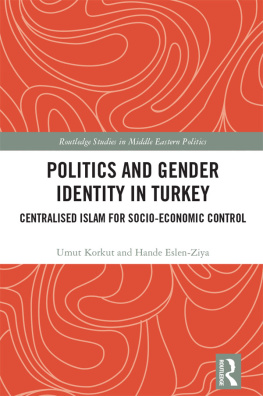
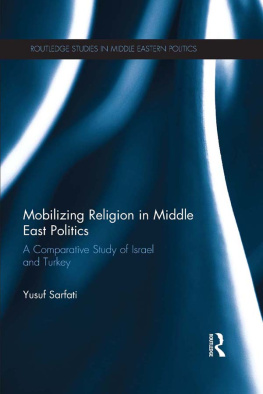
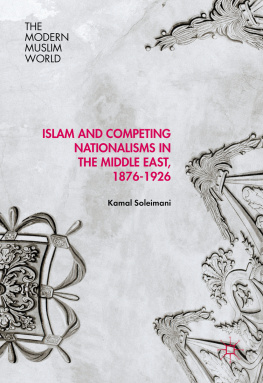
![Blackford - Freedom of religion [and] the secular state](/uploads/posts/book/167779/thumbs/blackford-freedom-of-religion-and-the-secular.jpg)
